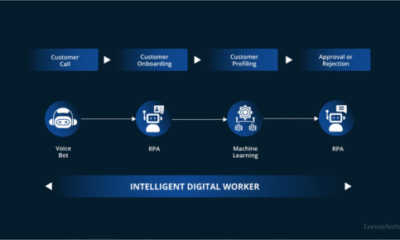Technology
Best AI Tools for Researchers
Best AI Tools for Researchers are transforming the way academics and professionals approach data analysis, literature reviews, and project management. In an era where technology evolves rapidly, utilizing advanced AI tools can significantly enhance research efficiency and accuracy. This article will explore some of the top AI tools available for researchers and how they can streamline your workflow.
1. The Importance of AI in Research
When it comes to research, AI tools can provide invaluable support. These tools help researchers sift through vast amounts of data, identify trends, and automate repetitive tasks. By integrating AI into your research processes, you can achieve faster, more accurate results.
2. Top AI Tools for Researchers
Here’s a curated list of some of the best AI tools that can boost your research productivity:
a. Zotero
Zotero is a robust tool for managing references and organizing research materials. It helps researchers collect, organize, cite, and share research sources. With Zotero, you can easily manage bibliographic data and share research findings with collaborators.
b. Scrivener
Scrivener is ideal for organizing long documents and managing research projects. Its flexibility allows you to break down complex projects into manageable sections. For researchers working on extensive papers, Scrivener offers a structured approach to writing and organizing.
c. Mendeley
Mendeley combines reference management with academic social networking. It allows researchers to manage their papers, annotate PDFs, and collaborate with others. Through Mendeley’s network, you can discover and connect with researchers who share similar interests.
d. IBM Watson
IBM Watson offers advanced AI capabilities for analyzing large datasets and generating insights. With Watson’s cognitive computing, researchers can process natural language and extract valuable information from unstructured data.
e. Google Scholar
Google Scholar is a widely used tool for finding scholarly articles across various disciplines. Its AI-powered search helps researchers access a vast repository of academic papers, citations, and patents.
3. How to Choose the Right AI Tool for Your Research
Selecting the right AI tool depends on your specific research needs. Here are some factors to consider:
- Functionality: Ensure the tool offers features that align with your research goals.
- Ease of Use: Choose a tool with an intuitive interface to save time and reduce frustration.
- Integration: Opt for tools that integrate seamlessly with other research software you use.
4. The Future of AI in Research
The future of AI in research looks promising, with continuous advancements enhancing the capabilities of these tools. Researchers can expect even more sophisticated AI technologies that will further streamline the research process, making data analysis and project management more efficient.
Additional Resources
You can use comprehensive AI tool sites Like AI Directory for your word to provide you with an extensive overview of various AI tools and their applications across different fields.
Conclusion
In summary, the best AI tools for researchers can greatly enhance the efficiency and effectiveness of your research endeavors. By leveraging these tools, you can focus more on your research questions and less on administrative tasks. Whether you need help with data analysis, reference management, or project organization, there’s an AI tool to meet your needs.
Meta Description: Discover the best AI tools for researchers to boost productivity and streamline your workflow. Learn how AI can revolutionize your research process.

















You must be logged in to post a comment Login